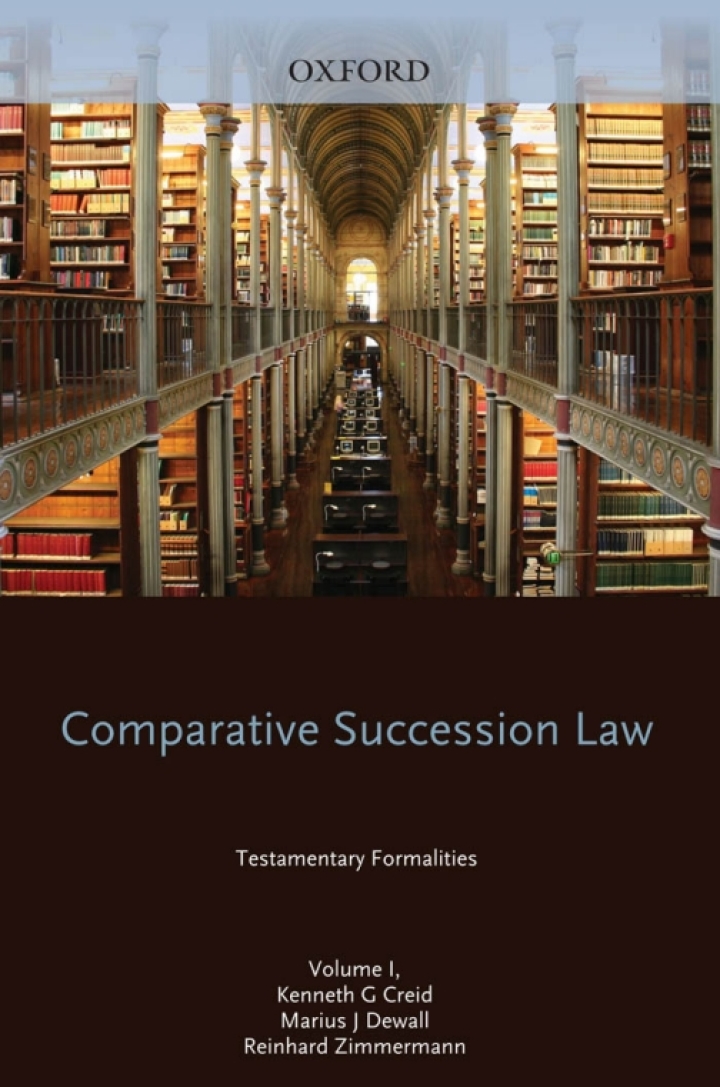Comparative Succession Law 1st Edition Volume I: Testamentary Formalities
$78.00
Attention: This is just ebook, Access Codes or any other Supplements excluded! / File Delivery: Sent Via Email within 24 hours!
SKU: 25ef7963df9d
Category: Law Textbooks
Description
-
Author(s)Kenneth G C Reid; Marius J de Waal; Reinhard Zimmermann
-
PublisherOUP Oxford
-
FormatPDF
-
Print ISBN
9780199696802, 0199696802 -
eText ISBN
9780199696802, 0199696802 -
Edition1st
-
Copyright
- Details
Launching a major new research project examining the principles of succession law in comparative perspective, this book discusses the formalities which the law imposes in order for a person to make a testamentary disposal of property. Among the questions considered are the following. How are wills made? What precisely are the rules – as to the signature of the testator, the use of witnesses, the need for a notary public or lawyer, and so on? Is there is a choice of will-type and, if so, which type is used most often and what are the advantages and disadvantages of each? How common is will-making or do most people die intestate? What happens if formalities are not observed? How can requirements of form be explained and justified? How did the law develop historically, what is the state of the law today, and what are the prospects for the future? The focus is on Europe, and on countries which have been influenced by the European experience. Thus in addition to giving a detailed treatment of the law in Austria, Belgium, England and Wales, France, Germany, Hungary, Italy, the Netherlands, Poland, and Spain, the book explores legal developments in Australia, New Zealand, the United States of America, and in some of the countries of Latin America with a particular emphasis on Brazil. It also includes chapters on two of the mixed jurisdictions – Scotland and South Africa – and on Islamic Law. The book opens with chapters on Roman law and on the early modern law in Europe, thus setting the historical scene as well as anticipating and complementing the accounts of national history which appear in subsequent chapters; and it concludes with an assessment of the overall development of the law in the countries surveyed, and with some wider reflections on the nature and purpose of testamentary formalities.
Related products
-

Commercial Arbitration in Sweden 3rd Edition
Rated 0 out of 5$146.25 Add to cart -

Business and Investment in Brazil Law and Practice
Rated 0 out of 5$66.62 Add to cart -

Challenging Acts of International Organizations Before National Courts 1st Edition
Rated 0 out of 5$43.88 Add to cart -

Agency in Mental Disorder Philosophical Dimensions
Rated 0 out of 5$26.00 Add to cart

